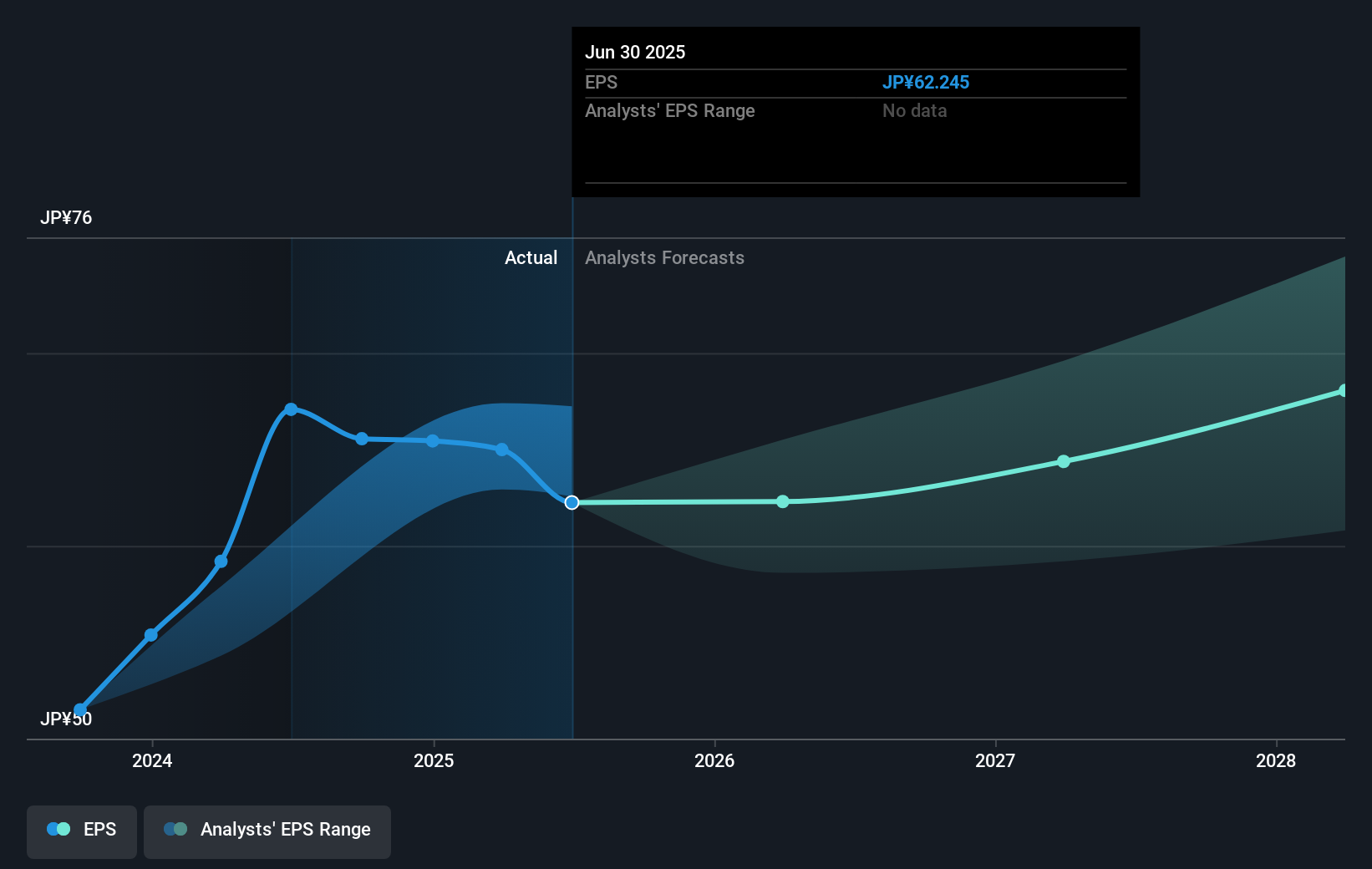Investors in Kikkoman (TSE:2801) have unfortunately lost 29% over the last year
Investors can approximate the average market return by buying an index fund. Active investors aim to buy stocks that vastly outperform the market - but in the process, they risk under-performance. Investors in Kikkoman Corporation (TSE:2801) have tasted that bitter downside in the last year, as the share price dropped 30%. That contrasts poorly with the market return of 27%. At least the damage isn't so bad if you look at the last three years, since the stock is down 22% in that time.
With that in mind, it's worth seeing if the company's underlying fundamentals have been the driver of long term performance, or if there are some discrepancies.
To quote Buffett, 'Ships will sail around the world but the Flat Earth Society will flourish. There will continue to be wide discrepancies between price and value in the marketplace...' One flawed but reasonable way to assess how sentiment around a company has changed is to compare the earnings per share (EPS) with the share price.
Unhappily, Kikkoman had to report a 7.2% decline in EPS over the last year. This reduction in EPS is not as bad as the 30% share price fall. Unsurprisingly, given the lack of EPS growth, the market seems to be more cautious about the stock.
You can see how EPS has changed over time in the image below (click on the chart to see the exact values).

Dive deeper into Kikkoman's key metrics by checking this interactive graph of Kikkoman's earnings, revenue and cash flow.
A Different Perspective
Investors in Kikkoman had a tough year, with a total loss of 29% (including dividends), against a market gain of about 27%. However, keep in mind that even the best stocks will sometimes underperform the market over a twelve month period. On the bright side, long term shareholders have made money, with a gain of 5% per year over half a decade. It could be that the recent sell-off is an opportunity, so it may be worth checking the fundamental data for signs of a long term growth trend. Before deciding if you like the current share price, check how Kikkoman scores on these 3 valuation metrics.
If you would prefer to check out another company -- one with potentially superior financials -- then do not miss this free list of companies that have proven they can grow earnings.
Please note, the market returns quoted in this article reflect the market weighted average returns of stocks that currently trade on Japanese exchanges.
Valuation is complex, but we're here to simplify it.
Discover if Kikkoman might be undervalued or overvalued with our detailed analysis, featuring fair value estimates, potential risks, dividends, insider trades, and its financial condition.
Access Free AnalysisHave feedback on this article? Concerned about the content? Get in touch with us directly. Alternatively, email editorial-team (at) simplywallst.com.
This article by Simply Wall St is general in nature. We provide commentary based on historical data and analyst forecasts only using an unbiased methodology and our articles are not intended to be financial advice. It does not constitute a recommendation to buy or sell any stock, and does not take account of your objectives, or your financial situation. We aim to bring you long-term focused analysis driven by fundamental data. Note that our analysis may not factor in the latest price-sensitive company announcements or qualitative material. Simply Wall St has no position in any stocks mentioned.
About TSE:2801
Kikkoman
Through its subsidiaries, engages in the manufacture and sale of food products in Japan and internationally.
Flawless balance sheet established dividend payer.
Similar Companies
Market Insights
Community Narratives



